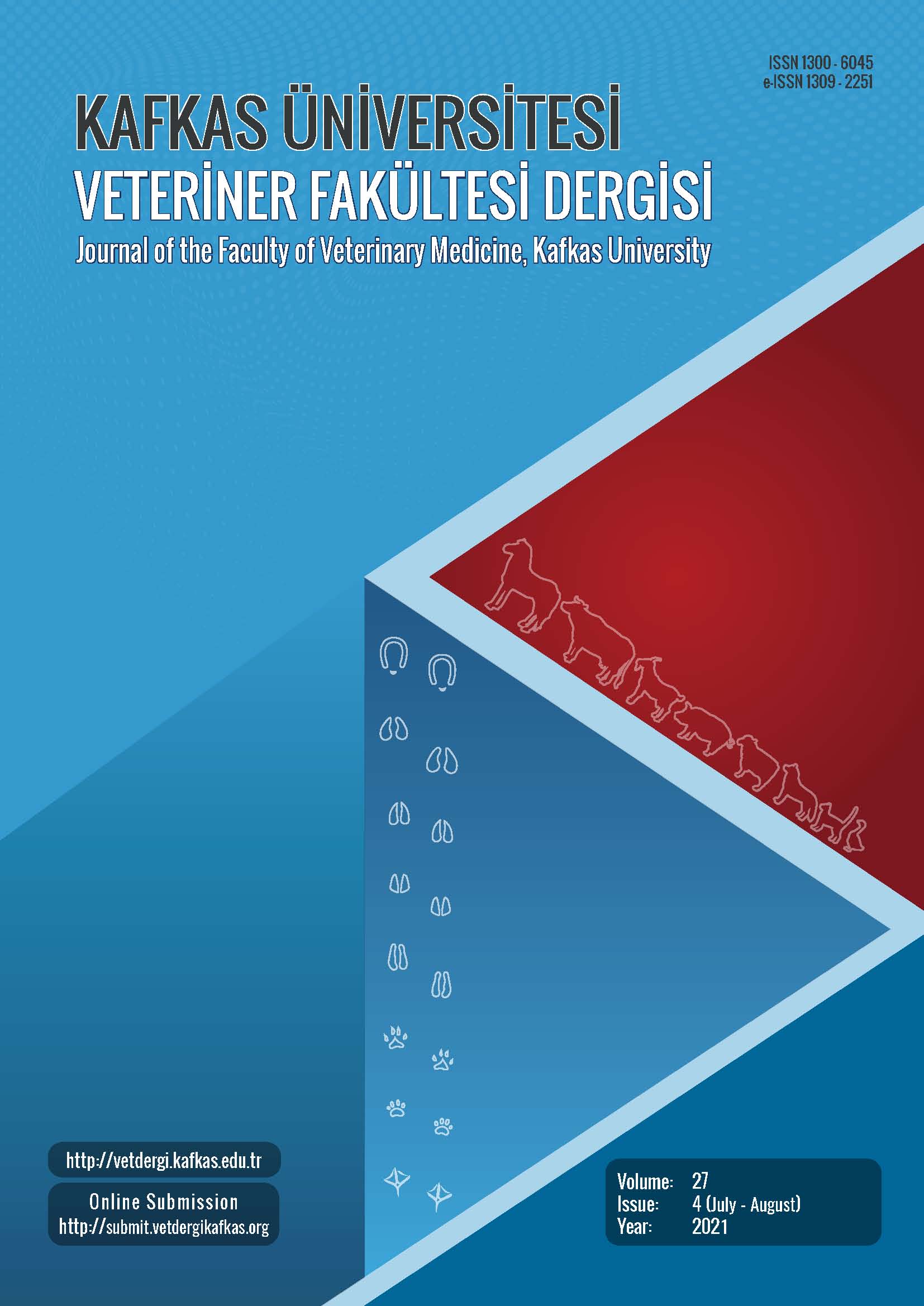
This journal is licensed under a Creative Commons Attribution-NonCommercial 4.0 International License
Kafkas Üniversitesi Veteriner Fakültesi Dergisi
2021 , Vol 27 , Issue 4
Cytotoxic and Apoptotic Eff ects of Curcumin on D-17 Canine Osteosarcoma Cell Line
1Aydın Adnan Menderes University, Veterinary Medicine Faculty, Biochemistry Department, TR-09000 Aydın - TURKEY2Selçuk University, Veterinary Medicine Faculty, Biochemistry Department, TR-42003 Konya - TURKEY DOI : 10.9775/kvfd.2021.25728 Cancer is a major health problem in dogs. Types of cancer seen in dogs include melanoma, Non-Hodgkin lymphoma, osteosarcoma, soft tissue sarcomas and prostate, breast, lung and colorectal carcinomas. Osteosarcoma (OSA) is the most common malignant primary bone tumor in domestic dogs. It constitutes 85% of skeletal tumors. It is derived from primitive bone cells that occur in both the appendicular (~75%) and axial (~25%) skeleton. The present study was intended to determine the cytotoxic and apoptotic eff ects of curcumin administration at certain doses and in certain periods on D-17 canine osteosarcoma cells. Canine osteosarcoma cells were treated with curcumin and the eff ects of it on proliferation were determined by WST-1, apoptosis by caspase 3/7 activity (MuseCaspase 3/7) and the ratio of proapoptotic Bax gene to antiapoptotic Bcl-2 gene expression level by qRT-PCR. Our data demonstrated that curcumin decreased cell proliferation and viability, ultimately inducing caspase 3/7 mediated apoptosis in treated D-17 canine osteosarcoma cells. Furthermore, the application of curcumin on canine osteosarcoma cells downregulated the expression of Bcl-2 and upregulated the expression of proapoptotic gene Bax. Thus, these results may provide a basis for further study of curcumin in the treatment of breast cancer. Keywords : Apoptozis, bax/bcl-2, Canine osteosarcoma, Caspase 3/7, Curcumin











